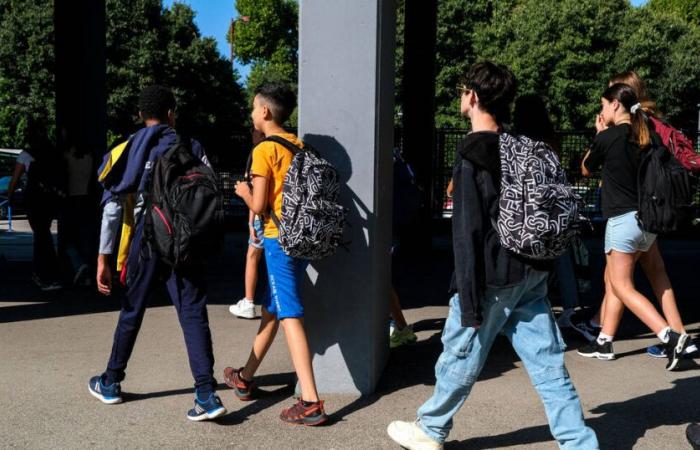
Internships carried out at the end of secondary school allow young people to mature, but they could be better supervised, in order to improve this first experience in business, defends Camille de Foucauld, from the VersLeHaut think tank.
This Monday opens the ball for third-year trainees, the week before Christmas traditionally being the most popular for colleges to send their students to companies. Hordes of more or less motivated adolescents will therefore take up residence in various departments for five days. Finally… more or less motivated, or more or less prepared? The Orientation Collective and Medef released a survey last month on immersions in companies (third year, second year internships, company visits, professional high school internships), conducted among companies, teachers, young people aged 13 to 20 years and parents of students of these ages (1), in order to collect the feelings of each. The survey revealed in particular that 92% of young people enjoyed their internship and that 94% of companies considered the professional immersions beneficial.
But the benefits of an internship are not necessarily what we think, explains Camille de Foucauld, project manager at the VersLeHaut think tank, member of the Collectif Orientation, which outlines avenues for improvement to make this passage obligatory. more relevant for everyone. In particular by guiding the students more.
What do company internships bring to students?
Internships are really beneficial to students. Their greatest learning is maturity and what we call self-efficacy. It is conditional on the fact that the trainee is active and it increases when the trainee has the opportunity to hear the testimony of a professional, about his professional life, his journey.
We see fewer benefits from moving forward in our career choices. The internship generates more uncertainties than certainties. 33% of students consider that it gave them desires for their direction, this is really not huge. But that's not a bad thing at all, that's how you gain maturity – provided that you can have answers to the questions you ask yourself during the internship.
However, adults tend to view the internship as a way of helping adolescents find their way.
We are planning this because there is a kind of tension around the orientation, more and more real with the stress of Parcoursup.
The reception conditions for young people are not always optimal. For example, 45% of companies say they lack time to supervise them.
Time is a bit of the crux of the matter. Intermediaries should offer companies turnkey tools to enable them to welcome many more interns. We could set up a framework at the national level which says what is expected of the student. For example: talking to a professional and asking them questions about their itinerary, taking notes during a meeting and explaining what they understood, then writing a post on the company's social network.
Today, only 45% of companies regularly welcome students. It is especially the small ones that need to be equipped, because they experience more difficulties. All companies can welcome an intern, not necessarily the largest.
According to the companies, only one in two students shows interest and curiosity, and one in five realizes afterwards that they did not know how to behave or what to observe. So observation is not an easy thing?
It is an exercise in itself to observe in a constructive, active way, but no student learns to observe at school. There is a real asymmetry: we sometimes have a very young teenager, facing a business manager who potentially forgets that the intern who seems lost or insolent does not even dare to ask where the toilets are or what to do. Perhaps we should stop talking about observation training because it confuses the role of the company. Obviously, students should not be put to work, but they should be guided. Observation often means boredom. The more we manipulate, the more we take on a role, the more we learn.
Few companies meet the student before the internship. However, we were able to see that it was very useful because, if there was even one meeting, it relieves stress, it allows the student to know what is expected of him , how to dress… If the course is not organized in three stages (anticipation, preparation, restitution), it loses a lot of educational dimension. We must also revalorize parents in the role of companions, because according to a study that we have carried out, they are the first points of reference for young people, before politicians, doctors, firefighters or influencers.
(1) Study carried out between February and May 2024. The quantitative component was carried out by Opinion Way using four samples formed using the quota method: 602 companies, 600 teachers, 636 young people aged 13 to 20, 889 parents of students aged 13 to 20. The qualitative component was piloted by the VersLeHaut think tank with ten focus groups: three of young people aged 13 to 18, three of educators, one of parents of students, one of professional immersion experts students, from civil society, and two from business representatives.





